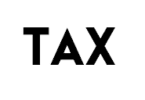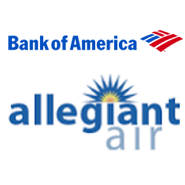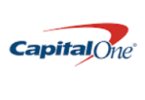Update 12/24/22: The IRS has delayed this for one year. More details in this post.
Update 1/28/22: See follow-up post, About That 1099-K From Paypal
Update 12/20/21: Just a reminder that this goes into effect beginning January 1, 2022. Again, this is not a new tax and does not increase or decrease the amount of taxes you are required to pay by law. It’s just more forms and accounting hassle that will have to be dealt with. And of course, if there’s anyone who was underreporting their income it’ll get much harder for them to do so now.
We’ll likely have to wait until 2023 until we have more clarity on how Paypal and other companies are deciding which payments were for goods and services and which are rebates or other kinds of money transfers.
Related, I once wrote my non-professional thoughts on taxation as it relates to the little hobby of ours, see My Thoughts on Taxes for Miles, Points, and Cash Back.
Original Post:
A major under-reported facet of the massive $1.9 stimulus bill (round 3) is that it strengthens requirements on payment processors like Paypal to report on income received through their platforms:
Beginning on January 1, 2022, third party payment processors will have to report any income for goods or services exceeding $600 during the calendar year on a form 1099-K. Previously, processors only had to report this income if it was BOTH: (a) $20,000 or more during the calendar year, and (b) 200 transactions or more. This allowed most smaller stuff (like Topcashback, Ebates, PFS, Swagbucks payments) to go unreported.
(A few select states such as Illinois already have stricter laws requiring reporting at the $600 threshold, but most areas are currently governed by the federal requirements. Those are changing in 2022.)
This change concerns me for a few reasons:
- I’m worried that companies may not always know what is ‘goods and services’ and what is not, leading to misclassifications. E.g. portal earnings are likely rebates and not considered ‘goods or services’, but I’m not confident that Paypal will classify that correctly (as has been the case in the past when even P2P payments were somehow included in the 1099).
- Even if everything is correct and it’s income that I’m reporting anyway, it still adds a level of complication to everything, e.g. making sure the tax form is directed to the correct entity (personal or business), and having to burden your accountant with multiple small tax forms from a bunch of random companies.
- It’ll also complicate things for an occasional seller, e.g. someone sells their old iPhone on eBay for $600 and gets hit with a 1099-K which they or their accountant will have to deal with, even though they don’t owe any taxes on the sale (it sold for less than they bought it for years earlier).
- I wonder what will happen if someone gets double-1099ed. E.g. if someone gets paid $600 from a portal through Paypal, and they get a 1099-K from both Paypal and the portal for the payment. That might complicate things a bit.
Whether or not you get a tax form does not change what you actually owe, e.g. if you don’t get a tax form you still have to report income earned, and if you do get a tax form you still only pay tax on the actual profits. The primary purpose of this stricter law seems to be for gig workers like Uber/Lyft drivers and the like, but it seems like the rest of us will get encumbered by this as well.
Important note: The 1099-K is just for total processed transactions, it’s not assumed to be your total profit; typically the profit on a sale is only a tiny percentage of the 1099-K reporting amount. Or it could be zero if you sold something for the same amount you bought it for. It does still create a hassle with the tax reporting. Fo example, you might have to report a business which earned zero, versus simply leaving it off your tax return entirely. Also note, Zelle will not send out 1099s, according to this NBC article.
Interestingly, if you earn $500 from Topcashback and $500 from Ebates, and have them both paid via Paypal, then you’ll possibly get a 1099-K from Paypal. But if you get paid from Topcashback and Ebates directly to your bank, then you should not get a tax form.
You can read the full stimulus bill at this link; section 9674 is what we are discussing in this post:
SEC. 9674. MODIFICATION OF EXCEPTIONS FOR REPORTING OF THIRD PARTY NETWORK TRANSACTIONS.(a) In General.—Section 6050W(e) of the Internal Revenue Code of 1986 is amended to read as follows:
“(e) De Minimis Exception For Third Party Settlement Organizations.—A third party settlement organization shall not be required to report any information under subsection (a) with respect to third party network transactions of any participating payee if the amount which would otherwise be reported under subsection (a)(2) with respect to such transactions does not exceed $600.”.
(b) Clarification That Reporting Is Not Required On Transactions Which Are Not For Goods Or Services.—Section 6050W(c)(3) of such Code is amended by inserting “described in subsection (d)(3)(A)(iii)” after “any transaction”.
(c) Effective Date.—
(1) IN GENERAL.—The amendment made by subsection (a) shall apply to returns for calendar years beginning after December 31, 2021.
(2) CLARIFICATION.—The amendment made by subsection (b) shall apply to transactions after the date of the enactment of this Act.






